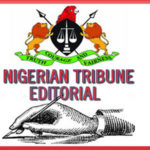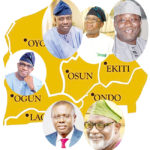With Federal Government’s determination to increase its revenue, it has become imperative to plug all loopholes while expanding the net. SANYA ADEJOKUN looks at the need to balance the act in the face of recent divestments by some oil majors.
On December 18, 2019, the Nigerian Oil and Gas Industry Content Development Act (Amendment Bill 2020) was read for the second time in the Senate. Leading the debate on the Bill on May 19, during its second reading, sponsor of the bill, Teslim Folarin, explained that it seeks to amend 38 sections of the extant Act while introducing six new sections. According to him, the essence of the bill is to bring the provisions of the sections to be amended into congruence with industry best practices.
If it becomes law, the bill will repeal and replace the Nigerian Oil and Gas Industry Content Development Act 2010 (“Act”). The Act established a legal framework for the development of local content requirements in the oil and gas sector in Nigeria. The two main functions of the bill are to broaden the existing local content requirements for the oil and gas sector; and implement a similar regime for the ICT, power, solid minerals and construction sectors.
Folarin said that the Nigerian Oil and Gas Industry Content Development Act, which was passed in 2010, sought to among others, address the then abysmally low level of Nigerian content in the oil and gas sector of the economy; create a regulatory mechanism to monitor and enforce compliance by industry players; and to domesticate substantial part of oil and gas exploration and production activities within Nigeria.
“You will recall that before this Act came into force in 2010, over ninety percent of the $20 billion spent yearly in the Nigerian oil and gas industry was repatriated abroad. This was because a large chunk of the contracts was executed by foreign companies and in foreign facilities. With only few indigenous players and facilities participating in the contracting process in the industry, Nigerian content was less than five percent,” Folarin said.
Main provisions of the bill
- Governing body: The bill seeks to establish a new Nigerian Oil and Gas Content Development and Enforcement Board (“Board”) to oversee and enforce the local content requirements in the oil and gas sector. Among other things, the Board is responsible for evaluating and approving Nigerian content plans and reports submitted by operators and, in conjunction with the Minister of Petroleum, making regulations establishing minimum standards.
- Preference to Nigerian operators: Similarly, to the Act, the Bill provides that Nigerian independent operators must be given “first consideration” in the award of oil blocks, licences and projects and that indigenous Nigerian service companies which can demonstrate capacity to execute oil and gas contracts and services receive “exclusive consideration”.
- Work permits for non-Nigerians: All non-Nigerian persons employed or to be employed in the oil and gas sector must apply for and obtain a work permit and prior approval of the Board must be obtained before any such application is made.
- Labour clause: All contracts or projects with a total budget exceeding US$ 1,000,000 must contain a “labour clause” mandating the use of a minimum percentage of Nigerian labour as may be specified by the Board.
- Employment of Nigerians: All operators and companies operating in the Nigerian oil and gas sector must employ only Nigerians in their junior and intermediate ranks.
- Succession plan: Operators must submit to the Board a succession plan for any position not held by a Nigerian person. Such plan must provide for Nigerians to shadow each incumbent expatriate for a maximum period of five years and at the end of the five-year period the position must become “Nigerianised”.
- Ownership of equipment: International companies operating through their Nigerian subsidiaries must demonstrate that a minimum of 50 per cent of the equipment used is owned by their Nigerian subsidiaries.
- Penalties: Penalties for non-compliance now include five year imprisonment in addition to a fine of 15 per cent of the project sum.
Other highlights of the bill include: Creation of a Nigerian Content Council to be headed by the Vice President; deduction of 2 per cent from every contract awarded in Nigeria for the development of local content; ensuring that no expatriate is allowed to do a job in Nigeria that can be done by Nigerians; building capacities of local companies, not only to compete in Nigeria but also abroad and ensuring the patronage of made in Nigeria goods.
The amendment to Section 11 captured in the new bill would give powers to the Minister of Petroleum to review the minimum target level for Nigerian content set in the schedule where the level is considered beyond the capacity of Nigerian companies by the board. The amendment proposed to Section 33 of the Act would streamline and strengthen the process for obtaining expatriate quota to close the gap for current leakages and manipulation by foreign companies. Folarin explained further that amending Sections 37, 38 and 39 in the Bill would improve the provisions relating to research and development and ensure proper implementation, while Section 76 is proposed to give the Governing Council of the Board the role of superintending over the conditions of service of employees of the board. A new Section 81 was introduced to empower the Senate to screen and approve nomination of the Executive Secretary of Nigeria Content Development and Monitoring Board (NCDMB) before confirmation.
According to Minister of State for Petroleum Resources, Timipre Sylva, Nigeria has recorded significant accomplishments in content development since NOGICD Act 2010 and even prior to the enactment of the Act. He said “before 2010, only three per cent of marine vessels were Nigerian owned; but today, Nigerians control and own over 40 per cent of vessels that are used in the oil and gas industry. In the area of fabrication, Nigeria can handle fabrication of more than 60,000 tonnes per year, with its array of world-class fabrication yards.”
More so, the industry has continued to demonstrate commitment to the promotion of Nigerian content and has been involved with other stakeholders in proposing and considering various amendments to the NOGICD Act, to ensure that the objectives of the Federal Government on Nigerian content are realized in an efficient and practical manner.
It is important to acknowledge the value of having an effective Nigerian Content Law that will help put Nigerians on the driver’s seat in the critical oil and gas industry, by ensuring capacity development and increased opportunities for Nigerian businesses. We must commend our lawmakers for the move to expand the Nigerian Content Law, creating more opportunities for Nigerians, by amending it and introducing some new provisions.
However, some analysts have expressed concerns on the draft bills to amend the NOGICD Act. Industry watchers are particularly concerned about the proposals to increase the contributions to the Nigeria Content Development Fund (NCDF) by 100 per cent and the additional requirement for companies to provide annually a minimum of 0.5 per cent of their respective gross revenues for Research & Development (R&D) activities in Nigeria among other changes. The Bill also seeks for the oil and gas operator to bear all the penalties exclusively (100 per cent), contrary to the standard liability and risk distributions in joint operating agreements and global oil and gas industry practice.
Such analysts argue that the industry is already significantly overburdened by a plethora of levies and fees: Education tax, NPTF levy, NCDF Levy, NDDC Levy, Nigerian Export Supervision Scheme, and Offshore Safety Permit. Others include Cargo & Stevedoring Dues, Waste Reception Facilities Levy, Value Added Tax, among others. They maintain that any additional financial imposition as proposed by the NOGICD Act (Amendment) Bill on the industry will very negatively impact Nigeria’s competitiveness and affect the viability of projects and investments.
“The industry is still reeling from the financial impact of the Deepwater Offshore and Inland Basin Production Sharing Contract (Amendment) Act, the Finance Act, and Petroleum (Drilling and Production) Regulation amendments with their cost burden. In this current environment of lower oil prices, OPEC production cut and the pervading macro-economic effects of the COVID-19 pandemic, the government is expected to support the industry to remain a viable partner for the economic development of Nigeria,” analysts emphasize.
The drive by the Ministry of Petroleum Resources and NNPC to cap production cost at $10/barrel will be significantly challenged by this Bill. On the one hand, government wants to achieve lower costs; on the other hand, it’s imposing multiple taxes and levies – NDDC (3 per cent); Education tax (2 per cent); NOGICD Amendment (2 per cent) and (0.5 per cent) for R&D. Other Bills with potential to increase costs are NOSDRA Amendment, Maritime University Bill, Host Community Bill, CSR Bill, among others. This is without consideration for high security costs, assets fixing and environmental remediation costs that follow asset damages.
They have thus advocated that a further comprehensive review of the proposed amendments with all stakeholders is necessary, in the best interest of the oil and gas industry and the country at large. Without diminishing the importance of Nigerian content development, some commentators advise that the country should not kill the oil and gas industry, the goose that lays the golden egg
YOU SHOULD NOT MISS THESE HEADLINES FROM NIGERIAN TRIBUNE
Nigeria Not Yet Safe For Reopening Of Schools, FG Tells Govs
The Federal Government has advised the state governments not to aggravate the COVID-19 crisis by reopening of schools because of pressure from the children and parents… Read Full Story
Saudi Arabia Bars Travellers From 2020 Hajj
Nigerians and other nationalities planning to go to Saudi Arabia for the 2020 hajj may have had their hope dashed as the Kingdom of Saudi Arabia on Monday said only persons already living in the country would participate… Read Full Story
Presidency Congratulates Ize-Iyamu Over Emergence As APC Candidate
The Presidency has congratulated Pastor Osagie Ize-Iyamu following his victory as the Edo State governorship candidate of the All Progressives Congress (APC)… Read Full Story
Reps Probe Multi-Trillion Naira SDGs, GEEP, Social Investment Projects
House of Representatives will next week flag-off the nationwide investigation into the multi-trillion naira projects implemented under the National Social Investment Programmes (NSIPs), Sustainable Development Goals (SDGs) and Government Empowerment Enterprise Programme… Read Full Story
COVID-19 Causes Unprecedented Jobs Crisis —UN •Says small and medium-size enterprises may not recover
THE United Nations (UN) has declared that the COVID-19 pandemic has caused an unprecedented jobs crisis across the world; while almost all workers and businesses have been affected by lockdown measures… Read Full Story
COVID-19: Livelihoods Of Over 55 Million Domestic Workers At Risk —ILO
AS a result of COVID-19 pandemic, the International Labour Organisation (ILO), said the livelihoods of more than 55 million domestic workers are at risk… Read Full Story
EDITORIAL: RMRDC And The Kilishi Breakthrough
PROFESSOR Hussain Ibrahim, the Director General of the Raw Material Research and Development Council (RMRDC), caused more than a stir recently when he appeared before the Senate Committee on Science and Technology. Asked to elaborate on the core achievements of the council, he told the committee that the… Read Full Story
Let’s Kill The Politicians
Please don’t be alarmed, it’s not the end of the world yet. Truth is, we can do without them all, I mean the politicians. We don’t need them at all to survive. But then, who actually is a politician? According to the learned authors of Merriam-Webster Dictionary, a ‘politician’ is “a person experienced in the art or science of… Read Full Story
WATCH TOP VIDEOS FROM NIGERIAN TRIBUNE TV
- Let’s Talk About SELF-AWARENESS
- Is Your Confidence Mistaken for Pride? Let’s talk about it
- Is Etiquette About Perfection…Or Just Not Being Rude?
- Top Psychologist Reveal 3 Signs You’re Struggling With Imposter Syndrome
- Do You Pick Up Work-Related Calls at Midnight or Never? Let’s Talk About Boundaries







